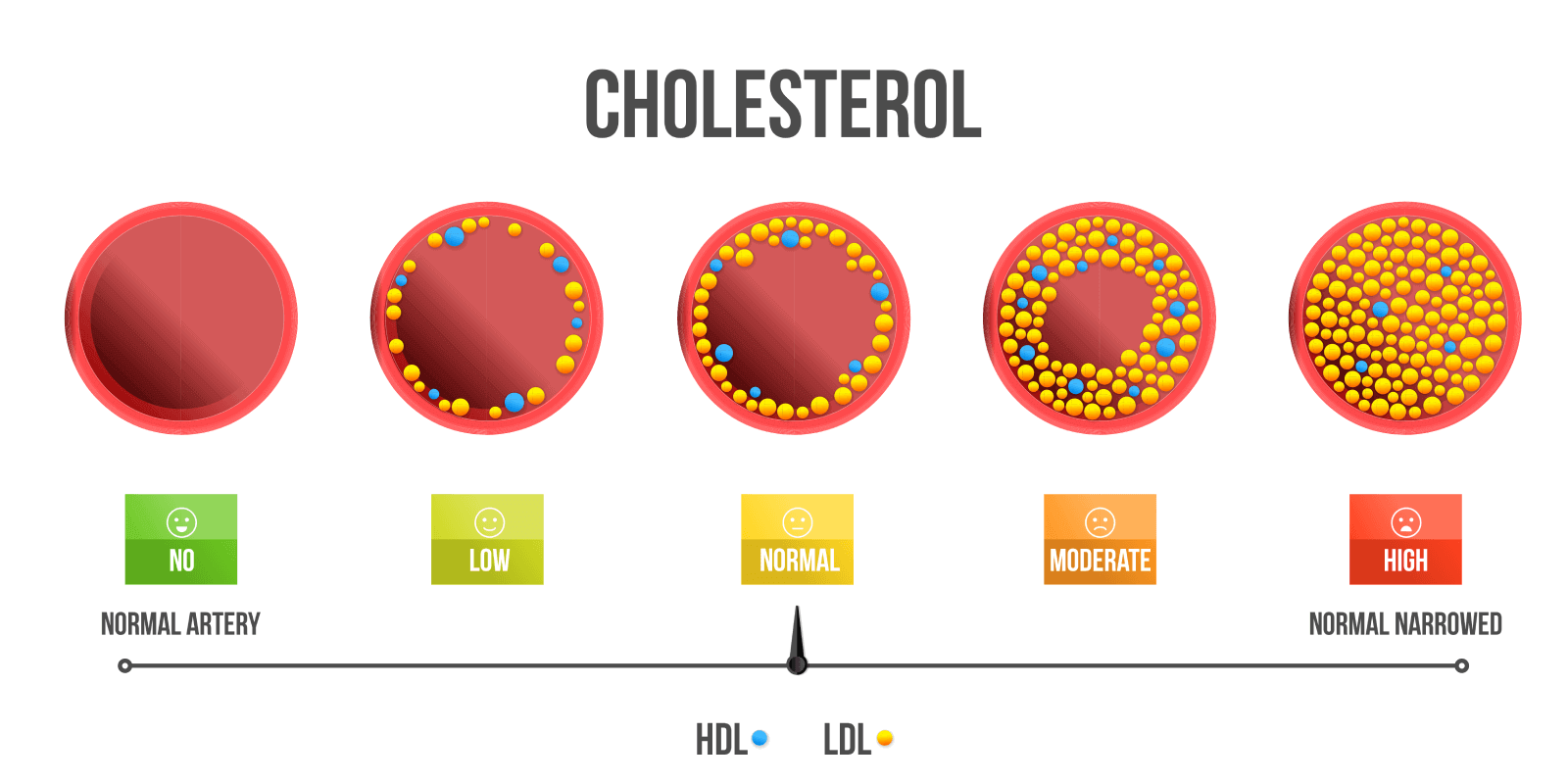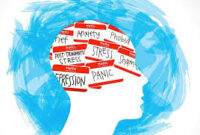Cholesterol is a waxy, fat-like substance found in the cells of your body. It’s produced by the liver and also obtained from certain foods. It’s crucial for building cell membranes, hormones, and vitamin D.
However, having high levels of cholesterol can lead to plaque buildup in arteries, increasing the risk of heart disease and stroke.
There are two main types of cholesterol: LDL (low-density lipoprotein), often called “bad” cholesterol because it can lead to plaque buildup, and HDL (high-density lipoprotein), often referred to as “good” cholesterol because it helps remove LDL from the bloodstream.
Lowering cholesterol often involves a combination of lifestyle changes and, in some cases, medication prescribed by a doctor. Here are some steps you can take:
1. Healthy Diet:
A healthy diet includes a variety of nutritious foods that provide essential nutrients while helping manage cholesterol levels. Here’s what it typically involves:
- Fruits and Vegetables: These are rich in vitamins, minerals, and antioxidants. Aim for a colorful variety, as different colors signify different nutrients. Examples include berries, citrus fruits, leafy greens, carrots, and bell peppers.
- Whole Grains: Opt for whole grains like brown rice, quinoa, whole wheat bread, and oats. They contain fiber, which can help lower cholesterol levels.
- Lean Proteins: Choose lean sources of protein such as poultry without skin, fish, beans, lentils, tofu, and legumes. These are lower in saturated fats compared to red meat.
- Healthy Fats: Incorporate sources of healthy fats, like avocados, nuts, seeds, and olive oil. These fats can improve cholesterol levels when used in moderation.
- Limit Saturated and Trans Fats: Reduce intake of saturated fats found in fatty meats, full-fat dairy products, and processed foods. Avoid trans fats commonly found in fried foods, packaged snacks, and some margarines.
- Low-Fat Dairy: Choose low-fat or fat-free dairy products to reduce intake of saturated fats while still getting essential nutrients like calcium and vitamin D.
- Reduce Added Sugars and Sodium: Cut back on sugary beverages, sweets, and processed foods high in added sugars. Also, limit sodium intake by choosing fresh foods and minimizing processed and canned foods.
- Portion Control: Pay attention to portion sizes to avoid overeating, which can lead to weight gain and affect cholesterol levels.
Remember, a healthy diet isn’t just about what you eat; it’s also about how much and how often you eat. Balancing different food groups and maintaining moderation is key to supporting overall health and managing cholesterol.
2. Exercise Regurarly:
Regular physical activity can help raise HDL (good) cholesterol and lower LDL (bad) cholesterol. Aim for at least 30 minutes of moderate-intensity exercise most days of the week.
Exercising regularly means engaging in physical activity on a consistent basis to improve your overall health and well-being. Here’s what it involves:
- Types of Exercise: It includes a mix of aerobic exercises (like brisk walking, running, cycling, swimming) and strength training (using weights or resistance bands) to work different muscle groups.
- Frequency: Aim for at least 150 minutes of moderate-intensity aerobic activity or 75 minutes of vigorous-intensity aerobic activity each week. Additionally, try to include muscle-strengthening activities on two or more days per week.
- Benefits: Regular exercise can help lower LDL (bad) cholesterol and raise HDL (good) cholesterol. It also improves overall heart health, boosts mood, helps manage weight, and increases energy levels.
- Start Slowly: If you’re new to exercise or haven’t been active for a while, start gradually. Begin with shorter sessions and slowly increase duration and intensity over time to prevent injury.
- Consistency is Key: Try to make exercise a regular part of your routine by scheduling it like any other important appointment. Consistency brings better results.
- Choose Activities You Enjoy: Find physical activities you like doing. It could be dancing, hiking, playing a sport, or even gardening. Enjoying your exercise makes it more likely that you’ll stick with it.
- Stay Safe: Always warm up before exercising and cool down afterward. Stay hydrated, wear appropriate gear, and listen to your body to prevent injuries.
Regular physical activity is a vital component of a healthy lifestyle. It not only helps in managing cholesterol levels but also contributes to overall well-being by improving cardiovascular health, boosting mood, and increasing energy.
3. Weight Management:
Weight management involves maintaining a healthy weight through a balance of diet, physical activity, and lifestyle choices. Here’s what it involves:
- Balanced Diet: Eating a well-rounded, nutritious diet that includes a variety of foods from all food groups in appropriate portions. It involves controlling portion sizes, choosing nutrient-dense foods, and avoiding excessive calorie intake.
- Regular Exercise: Engaging in physical activity on a consistent basis helps burn calories, build muscle, and improve overall health. It aids in weight loss by burning extra calories and maintaining a healthy metabolism.
- Calorie Balance: Weight management often revolves around the principle of calories in versus calories out. Consuming fewer calories than your body uses can lead to weight loss, while consuming more can result in weight gain.
- Healthy Lifestyle Habits: Besides diet and exercise, other lifestyle factors play a role. This includes adequate sleep, stress management, avoiding excessive alcohol intake, and not smoking.
- Setting Realistic Goals: Establishing achievable weight-related goals is essential. Aim for gradual, steady weight loss or maintenance rather than rapid or extreme changes, which may be harder to sustain.
- Monitoring Progress: Keeping track of food intake, physical activity, and weight can help stay accountable and make adjustments if necessary.
- Seeking Support: Having a support system, whether it’s friends, family, or a healthcare professional, can make it easier to maintain healthy habits and reach weight-related goals.
Weight management isn’t just about achieving a certain number on the scale; it’s about fostering a healthy lifestyle that supports overall well-being. It’s a combination of healthy eating, regular exercise, and sustainable habits that contribute to maintaining a healthy weight.
Read also:
- How to Easily Calculate Your BMI – Inspira Health
- How Many Calories in a Hot Dog – Inspira Health
- How to Loose Your Weight Fast
4. Quit Smoking
Quitting smoking is one of the most positive changes someone can make for their health. It’s a challenging journey, but the benefits are immense. Not only does it significantly reduce the risk of serious health conditions like heart disease, lung disease, and cancer, but it also improves overall well-being.
The decision to quit smoking shows incredible strength and determination. It’s not just about physical health; it’s about regaining control over one’s life and setting a powerful example for oneself and others.
The road to quitting may have bumps, setbacks, and tough moments, but each step toward a smoke-free life is a step toward better health and a brighter future. Seeking support, using various strategies, and staying committed are crucial parts of this journey.
The impact of quitting smoking goes beyond individual health—it positively influences the lives of those around by reducing secondhand smoke exposure. It’s a choice that not only benefits the quitter but also contributes to a healthier community.
Ultimately, quitting smoking is an incredible act of self-care and a powerful investment in long-term health and happiness.
5. Stop Alcohol
Stopping alcohol consumption, especially when it’s become excessive or problematic, can have significant health and lifestyle benefits. Here’s my take on it:
Choosing to stop drinking alcohol can be a positive and transformative decision. It often leads to numerous health improvements, including better sleep, improved mental clarity, and a healthier liver. It can also reduce the risk of various health conditions such as liver disease, high blood pressure, certain cancers, and mental health issues.
Stopping alcohol can positively impact relationships, work, and overall quality of life. It allows individuals to regain control, make clearer decisions, and often leads to increased productivity and a more fulfilling life.
However, for some, stopping alcohol consumption can be challenging, especially if it has become a habit or coping mechanism. Seeking support from friends, family, or professionals, and exploring healthy coping mechanisms or activities can greatly aid in the process.
It’s important to recognize that stopping alcohol doesn’t have to mean complete abstinence for everyone. Some may choose moderation or occasional drinking, and that’s okay as long as it’s done responsibly and doesn’t lead to negative consequences.
Ultimately, the decision to stop drinking or reduce alcohol consumption is a personal one, and it can be a significant step towards improved health, well-being, and a more balanced life.
6. Medication
Medication can be a crucial component of healthcare, offering relief, managing conditions, and improving quality of life for many people. Here’s my take on it:
Medications, when used appropriately and under the guidance of healthcare professionals, play a vital role in treating various health conditions. They can alleviate symptoms, control diseases, prevent complications, and even save lives.
For many individuals, medications are essential in managing chronic conditions like high blood pressure, diabetes, heart disease, and mental health disorders. They can provide stability, reduce symptoms, and enable individuals to lead fulfilling lives.
However, it’s crucial to approach medication with caution. Misuse, overuse, or improper use of medications can lead to adverse effects, drug interactions, and other health risks. It’s important to follow prescribed dosages, understand potential side effects, and communicate openly with healthcare providers.
Additionally, relying solely on medications without addressing lifestyle factors or underlying causes of health issues may not provide a complete solution. Integrating medication with healthy lifestyle choices, including diet, exercise, and stress management, can often enhance the effectiveness of treatment.
Ultimately, the decision to use medication should involve informed discussions between individuals and their healthcare providers. It’s about finding the right balance and approach that best suits an individual’s health needs and preferences while maximizing the benefits and minimizing potential risks.
Always consult with a healthcare professional before making significant changes to your lifestyle or if you have concerns about your cholesterol levels. They can provide personalized advice based on your individual health situation.






